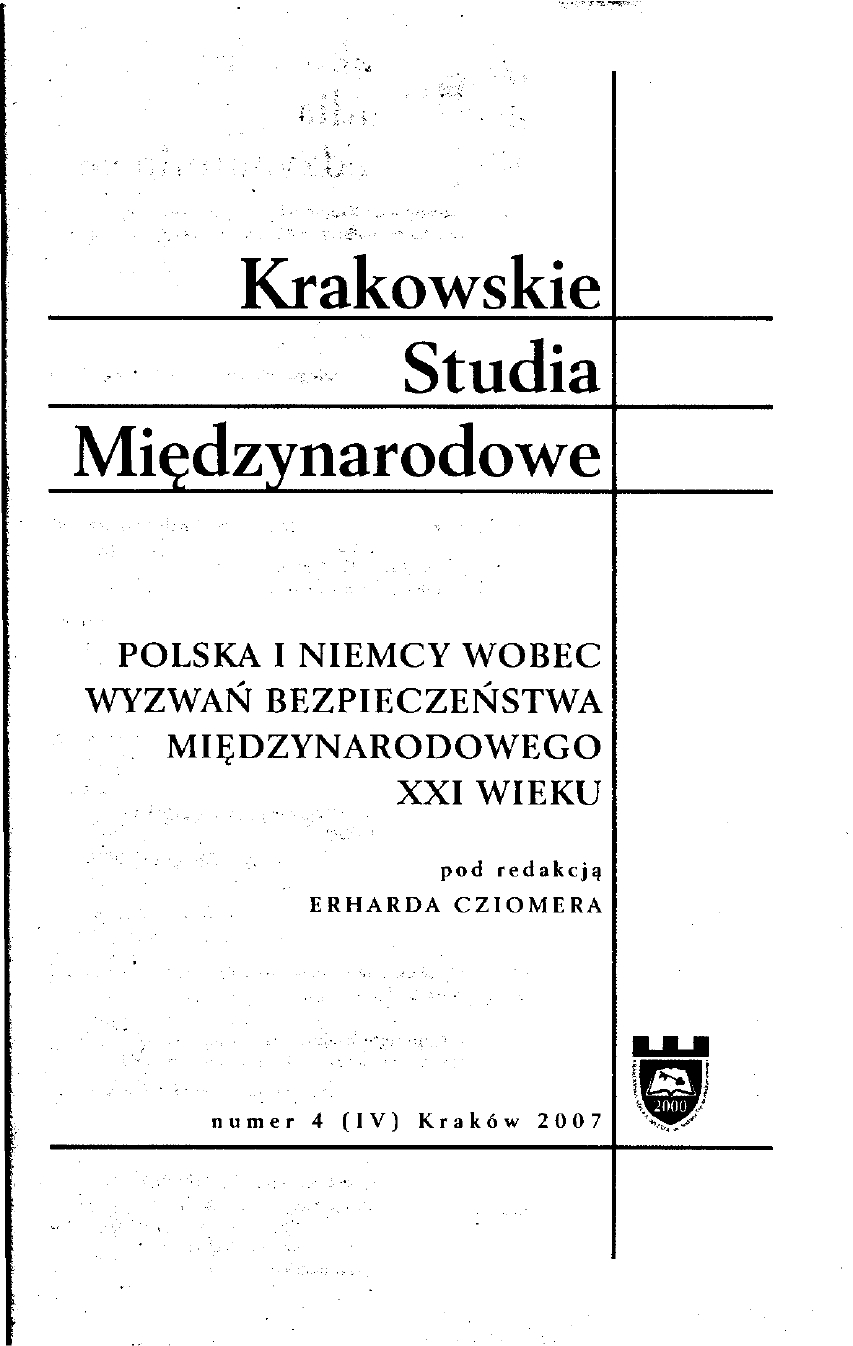Gazociąg Północny a bezpieczeństwo energetyczne Polski ze szczególnym uwzględnieniem gazu ziemnego
The Nord Stream gas pipeline vs. Poland’s energy security, with special emphasis on natural gas
Author(s): Ryszard M. CzarnySubject(s): Energy and Environmental Studies, Environmental and Energy policy, Security and defense
Published by: Oficyna Wydawnicza AFM Uniwersytetu Andrzeja Frycza Modrzewskiego w Krakowie
Summary/Abstract: The extensive, integrated systems of energy supplies inherited from the last decades of the preyious century do not appear to be able to provide full security. The emerging vision of the future of energy, including the security of energy supplies for Poland, may prove extremely complicated. The conducted analysis of these issues has brought the following general assumptions: 7. EU markets and these of the neighboring countries of Eastern Europe are the traditional consumers, of energy resources from Russia and former Soviet Republics. Enlargement of the EU made the relations of the Union with Russia more complex, among other reasons due to energy matters. Today, the EU market hesitates between the preservation of the status quo and further liberalization. Therefore a question regarding the futurę awaiting Europę must be posed: Is it going to be a renaissance of energy cooperation or a step back into the direction of energy conflicts? 8. The attempts undertaken by the Russian Federation to regain the dominant position in Europę through controlling the routes of energy transport is countered by Western countries efforts to bypass Russia, which in turn revives the traditional Russian feelings of being besieged. These struggles and competition resulted in a progressively more complex network of gas and oil pipelines, whose layout is designed either to bypass the countries Russia finds insecure or to assure that they cross Russia, going for example from Kazakhstan or Turkmenistan. The course of the pipelines financed by the West seems to be designed on the basis of exactly the opposite premise. 9. The improvement in energy security is a priority for Poland. We remain open in this regard but we are definitely interested to see various undertakings to fit into the plan which would build a strong position of Poland in European relations, including the energy market. 10. The issue of Poland’s energy security, however, cannot be considered outside the conditions set by the Union. Today, we may claim that the situation is not favorable for us as the Union proved certain vulnerability through its lack o f a coherent internal Common Energy Policy. The matter must be solved fairly soon by examining alternative solutions. It is even more pressing, as the practice of the last several months points out to the difference between the perception of the issue of energy security by the states of the “old” Union and Poland. Obviously, it is not simply a matter of definition but of the context, conditions, and the evaluation of current and future threats. 11. The Nord Stream gas pipeline (formerely known as North European Gas Pipeline) is a true exemplification of the Russian way of dealing with countries of incomparably smaller power potential. It is undoubtedly a triumph of Russian diplomacy safeguarding Russian national interests and reinforcing Russian political power. It is moreover a strategie defeat of Poland’s policy and a real threat for the futurę. The entire issue may be understood as a voicing of an attitude that Russia never formulated officially, and the Russian desire to depreciate the importance of Poland and other “stubborn” countries, parallel to a manifestation of the need and desire to cooperate with the states of the “old” Union. For its critics, it is a proof that Russia still engages in the divide et impera policy. 12. For Germany and Russia (the latter not even concealing that the purpose of constructing the pipeline is to bypass transit countries), the Nord Stream gas pipeline is of strategie importance. Although the author does not think it advisable to continue summoning Germany to keep solidarity with other EU countries in this regard, he wants to believe that from the point of view of geopolitical location and history, Germany will discover the sense of a connection and unity between the political strengthening of the Union and modeling their own bilateral relations.
Journal: Krakowskie Studia Międzynarodowe
- Issue Year: IV/2007
- Issue No: 4
- Page Range: 227-255
- Page Count: 29
- Language: Polish

